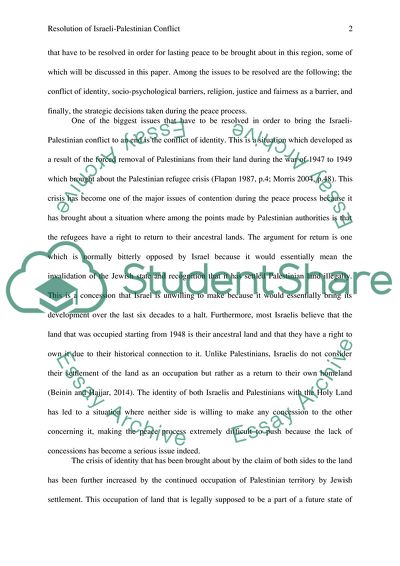Cite this document
(“Discuss the prospects for a peaceful resolution to the Essay”, n.d.)
Discuss the prospects for a peaceful resolution to the Essay. Retrieved from https://studentshare.org/social-science/1682179-discuss-the-prospects-for-a-peaceful-resolution-to-the-isreali-palestinian-conflictwhat-are-the-core-issues-that-need-to-be-resolved-for-lasting-peace-to-occur
Discuss the prospects for a peaceful resolution to the Essay. Retrieved from https://studentshare.org/social-science/1682179-discuss-the-prospects-for-a-peaceful-resolution-to-the-isreali-palestinian-conflictwhat-are-the-core-issues-that-need-to-be-resolved-for-lasting-peace-to-occur
(Discuss the Prospects for a Peaceful Resolution to the Essay)
Discuss the Prospects for a Peaceful Resolution to the Essay. https://studentshare.org/social-science/1682179-discuss-the-prospects-for-a-peaceful-resolution-to-the-isreali-palestinian-conflictwhat-are-the-core-issues-that-need-to-be-resolved-for-lasting-peace-to-occur.
Discuss the Prospects for a Peaceful Resolution to the Essay. https://studentshare.org/social-science/1682179-discuss-the-prospects-for-a-peaceful-resolution-to-the-isreali-palestinian-conflictwhat-are-the-core-issues-that-need-to-be-resolved-for-lasting-peace-to-occur.
“Discuss the Prospects for a Peaceful Resolution to the Essay”, n.d. https://studentshare.org/social-science/1682179-discuss-the-prospects-for-a-peaceful-resolution-to-the-isreali-palestinian-conflictwhat-are-the-core-issues-that-need-to-be-resolved-for-lasting-peace-to-occur.


